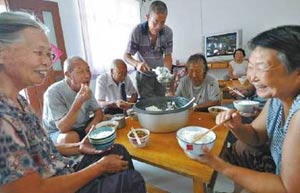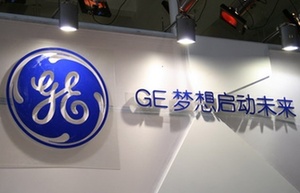Stepping up the research and development of biologic drugs could help drug researchers and makers in Asia reach a global market that has long been dominated by Western giants.
The three best-selling drugs on the world market last year (and seven of the top 10) were biologics. The top-selling drug in 2013 was AbbVie's Humira, which is used for rheumatoid arthritis among other things, with global sales reaching $9.7 billion.
The second-best seller was Genentech Inc's Rituxan, a cancer drug for non-Hodgkin's lymphoma, with sales of $7.7 billion. Another Genentech drug, Avastin, sold $7.6 billion.
By 2016, more biologic drugs, such as protein-based drugs, are likely to dominate the top 10 list, said Paul Bridges, worldwide head of Parexel Consulting, at the Bio Korea 2014 International Convention in Seoul last month.
By 2017, the global pharmaceutical market will be worth $1.2 trillion and Asia will account for as much as $250 billion.
These are precisely the types of drugs that the aging population in Asia will need in the years ahead. So not only are multinational companies setting up more research and development facilities in China, South Korea, Japan, Malaysia and Singapore, but so are a breed of new companies.
Most of what is driving investment is whether a company is developing a drug against a disease that is relevant to Western populations, said Eric Shiozaki, principal of Denmark-based global investor Novo A/S, speaking in Hong Kong recently.
"Sometimes a disease is not prevalent in the US so they overlook it and this is an opportunity for Asia."
Doctors, researchers and health ministries are optimistic about biologic drugs, which are more expensive but often more effective than their chemical counterparts. This is because they reach deeper into the cellular structure of the body and are often more targeted.
Asian governments have stepped up efforts to attract companies and make it easier for them to develop more biologic drugs and, perhaps more importantly, to get them into the hands of patients faster.
In April, Japan started moving forward on a plan to combine three ministries that control healthcare and research funding into a single and more effective institution. The plan is to create an organization like the National Institutes of Health in the United States, which would be responsible for drug research.
Japan is putting a lot of hope on the development of expensive biologic drugs to target areas like cancer, says Hiroshi Tamada, vice-president, Japan medical affairs at Bristol-Myers Squibb, a multinational drug company.
"Everybody is afraid of cancer. That's why even for expensive drugs with small side effects, the government will reimburse," he says. "The government has huge expectations for new biopharmaceuticals."
Cancer is the No 1 cause of death in Japan, killing around 361,000 people in 2012. It is also the leading cause of death in South Korea, another country that is putting a lot of hope in the development of biologic drugs.
China's own biotechnology industry grew fast last year, said Zhang Xiaoqiang, vice-chairman of the National Development and Reform Commission, speaking in March. China has already identified biotechnology as a driver of economic growth and cemented that in its 12th Five Year Plan (2011-2015), and the country has the domestic size to help companies step up globally.
Sinopharm Group Co Ltd, the largest pharmaceutical company in China, and Fosun Pharma, which is part of the giant Fosun Group, are both looking to develop biologic drugs for the global market.
 |
 |
| Sky's the limit in healthcare, GE chief says |
